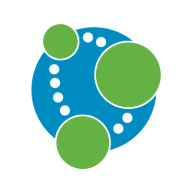

MongoDB Enterprise Advanced and Neo4j Graph Database are both competing solutions in the database category. MongoDB appears to have the upper hand due to favorable pricing and support, though Neo4j’s strong graph-based features offer distinct advantages for certain applications.
Features: MongoDB Enterprise Advanced is geared for scalability, advanced security functionalities, and flexibility, ideal for large volumes of unstructured data. Neo4j Graph Database excels with its powerful graph analytics capabilities, facilitating advanced pattern recognition and relationship mapping. MongoDB is document-oriented, whereas Neo4j specializes in graph-based operations.
Room for Improvement: MongoDB could improve its integration with certain analytical tools, enhance its complex querying flexibility, and streamline its migration processes. Neo4j might focus on reducing its learning curve, offering more competitive pricing models, and expanding its community resources for broader developer support.
Ease of Deployment and Customer Service: MongoDB offers extensive support and documentation, simplifying deployment with various cloud and on-premises arrangements. Neo4j provides a comprehensive customer experience but features a steeper learning curve due to its unique approach to graph-based data.
Pricing and ROI: MongoDB Enterprise Advanced typically offers a more favorable pricing structure, enabling quicker ROI due to transparent costs. Neo4j's pricing is more premium, justified in scenarios where its graph capabilities significantly optimize data workflows.
| Product | Market Share (%) |
|---|---|
| MongoDB Enterprise Advanced | 16.9% |
| Neo4j Graph Database | 5.9% |
| Other | 77.2% |

| Company Size | Count |
|---|---|
| Small Business | 36 |
| Midsize Enterprise | 13 |
| Large Enterprise | 37 |
MongoDB Enterprise Advanced is a comprehensive platform renowned for its scalability, user-friendliness, and high performance, underpinned by its flexible document-based storage and open-source model. JSON compatibility, clustering, and security elevate its standing among professionals.
The platform facilitates efficient data management through developer-friendly tools and a strong aggregation framework. MongoDB’s no-schema requirement, supported by community expertise, underlines its adaptability. While its sharding capabilities and affordably support large data volumes, there are aspects such as security enhancement and enterprise tool integration that need attention. Indexing and query optimization pose challenges, alongside high costs. Improvements in analytics and UI could advance its infrastructure further.
What are the key features of MongoDB Enterprise Advanced?Industries leverage MongoDB Enterprise Advanced for significant roles in data storage within IoT platforms, healthcare apps, public service monitoring, and big data analytics. Companies in logistics and telecommunications find it instrumental for business process management and video content management, benefiting from its seamless integration and unstructured data support.
Neo4j is the graph database solution allowing the analysis of complex relationships and patterns in data, leading to better decision-making and improved business processes. The graph database offers easy data integration from multiple sources, providing a more comprehensive view.
The most valuable aspect of a graph database is its performance and response time, as it does not use the join function and only has nodes and raw data. Overall, Neo4j, as a global first-ranking solution, has helped organizations become more efficient and effective in data analysis and decision-making processes.
We monitor all NoSQL Databases reviews to prevent fraudulent reviews and keep review quality high. We do not post reviews by company employees or direct competitors. We validate each review for authenticity via cross-reference with LinkedIn, and personal follow-up with the reviewer when necessary.